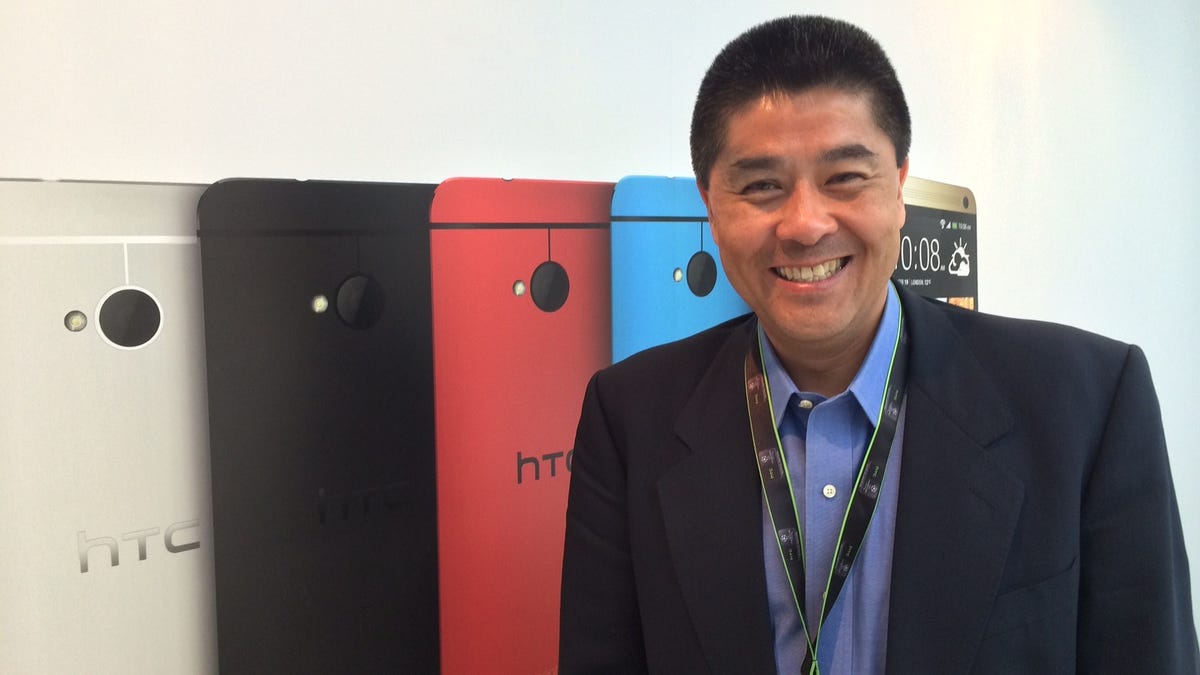HTC exec: We want to make a difference this year
HTC South Asia president Jack Yang speaks candidly to CNET about how the company is changing, its growth strategy and its competitors.

BARCELONA, Spain--The last thing you would expect someone to do would be to jump ship from Apple to HTC, but that's what Jack Yang, the former head of the Apple's iPhone business in Southeast Asia, did. And when he did, he leapt straight into the action.
The new boss of the South Asia market, which includes Southeast Asia, India and Australia, was part of the high-level team who convinced CEO Peter Chou to make the switch back into the mid-tier and, in the near future, the low-end market segment as well.
"Peter asked me to show him why we needed to go down this path and I had to provide lots of data to convince him," he said, "I'm glad Peter listened."
"That's credit to Peter and Cher [Wang, HTC Chairwoman] -- it was a wake-up call for us as a company and we are making the change."
That's not the only change that the company is making. Yang hinted at how the company will be looking into "expandability" in its future devices -- by letting them transfer music and photos from device to device.
"Expandability is the key to our consumers," he added.
This could likely mean the upcoming rumored HTC M8 will sport a microSD card slot, which is something not seen in a high-end HTC product in the last few years.
On the company's new approach
Yang also told CNET that the company will be realigning its marketing campaigns and will be focused on tailoring to the individual markets globally as well.
For example, in the U.S., the company will still compete in the high-end space, while in the Asia Pacific region where Yang is focused on, the strategy will be different depending on the country.
"The shotgun approach just kills us as we need to divert our resources," he said. "We'll pick and choose instead."
In India, Yang says the battleground will be the mid- and entry-level space, while in more mature markets such as Australia and Singapore, the company will be looking to take "pockets of its portfolio" as well as look into the low-end LTE device space (which he says is "big").
The whole approach is due to HTC's new plan to drive vertical integration -- Yang explains that a user isn't just going to jump in and buy a high-end HTC phone on a whim, but they may consider getting a cheaper product instead and slowly work their way up to HTC's premium segment.
And instead of fancy marketing campaigns, Yang says the company will be actively engaging telcos and retailers on the ground level. This seems vastly different to the approach the company took on last year, where it splurged $1 billion in ad money on a zany ad campaign with Iron Man actor Robert Downey Jr.
Yang says that while the campaign happened before he joined, it did make the HTC name known, though he admits it could have been done better.
CNET's full coverage of Mobile World Congress
On switching to HTC
As a former Apple guy, one of the first things Yang did when he joined was to talk to his engineers about making the jump to an HTC product.
"People always talk about how hard it is, and if you can't convince me to switch, there's something wrong," he said.
With the newly announced Desire 816, HTC wants to make it painless for those who are jumping over from Apple, and to facilitate this, the handset will only accept nano-SIMs, the same kind that Apple uses. There's also the HTC Sync Manager software, which makes it easy for customers to transfer contacts, bookmarks and pictures over.
HTC's Desire 816 has a 5.5-inch HD screen and a cheery coloured chassis (pictures)
See all photosOn the competition
Yang believes that the company is poised for a great comeback, and isn't too worried about the competition in Asia, even from vendors such as Xiaomi.
In places like Singapore and Taiwan, where the Chinese smartphone maker sold out of its new Redmi handset in a few minutes, Yang says that its business model is very unique and caters to early adopters. He added that Xiaomi sales have actually petered out in Taiwan, instead of getting stronger.
Yang's a bit more positive about Lenovo, whose smartphone empire has been steadily growing, and admits that the company's deep pockets could make it a formidable player. Yang compared Lenovo's current strategy to Samsung's marketing blitz, and also wonders if the company bought Motorola to get into the U.S. market or for the credibility of the brand.
On Windows Phone
Last year, HTC America's Tai Ito said that the company was still committed to Windows Phone, but the lack of launches said otherwise. Yang said that Windows is still a platform the company's looking at, but declined to announce anything. You probably shouldn't get your hopes up for a WP8 HTC device this year, but things could change.
Will this year be HTC's glorious return or the continuation of the company's struggles? It's hard to say for now. But HTC's new strategy with its mid-tier devices and the company's upcoming high-end M8 may be just enough for the company to hit a rebound.

